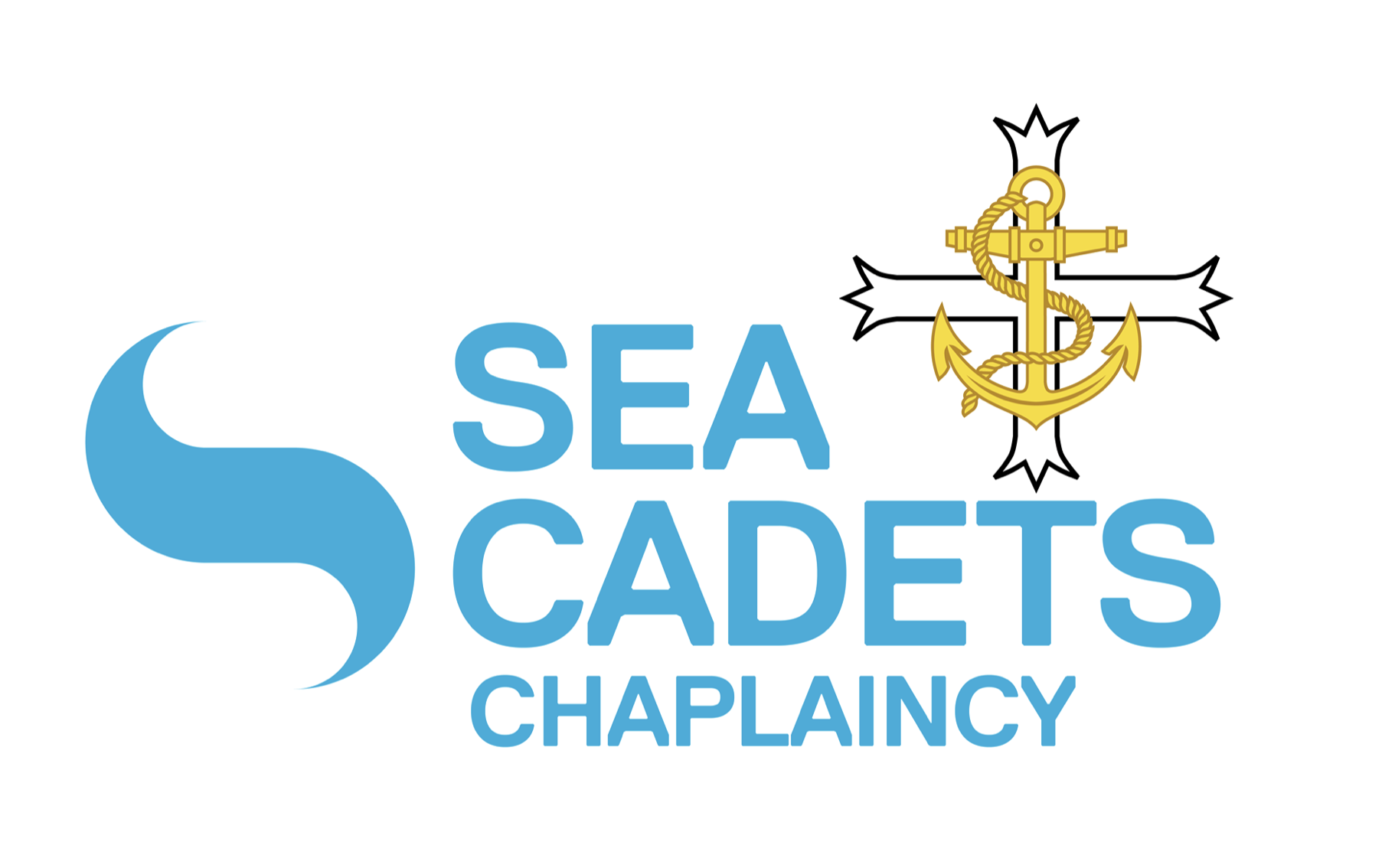7.1. Appointments
7.1.1. The Appointment Process
All Sea Cadet Units should endeavour to find a chaplain. This is not always easy but there may be people in the Unit who have Church connections and can perhaps suggest who might be approached. In line with the Naval Chaplaincy Service, chaplains are drawn from the major denominations and have to meet certain requirements as detailed below. If a Unit is uncertain about how to find a chaplain they can contact the District Chaplain or their Area Chaplain who will be able to advise and direct them to suitable Church authorities who may be able to suggest possible candidates to them.
SCC Chaplains differ from most unit staff in that they are 'Chaplaincy appointments' meaning that we follow a slightly different application process to normal and that ultimately your appointment certificate is signed by the Staff Chaplain on behalf of the Chaplaincy and the Corps Captain on behalf of the SCC.
When a possible candidate has been found, the following procedures should be followed.
7.1.1.1. The Unit Chaplain
Those wishing to become a chaplain in the Sea Cadet Corps must be Licensed to Minister in Churches which have a Line of Authority through which their training and competence can be verified by the senior member of that Church who has granted the Licence to Minister (e.g. Bishop, Superintendent or Regional Minister). Provided that they meet the above requirements candidates can be either Ordained or Lay Ministers. Therefore it is essential that when a Unit has identified a possible candidate whom the Chair and CO/OIC wish to ask to be their chaplain that the following protocols are followed.
Before any further action is taken the candidate should be asked to contact the relevant Area Chaplain whose responsibility it is to speak to the candidate to make sure that he/she meets the Church requirements and also explain the role and responsibilities of a chaplain and the requirement for Chaplaincy Training. It is also the Area Chaplains role to esnure that a prospective chaplain is not taking on too much and this may involve consultation with local diocesan and parish leaders especailly where the prospective chaplain has a work agreement. More and more dioceses are (happily) taking an interest and it is especially important to keep them happy - especially as the Bishop needs to authorise every appointment. All SCC Chaplains operate under their diocesan (or equivalent) license.
If, after this interview, both the Area Chaplain and the candidate are willing to proceed then the P1 process can begin.
N.B. The importance of this stage cannot be overstated as where it has not happened, very difficult situations have arisen where P1’s have been received by the Area Chaplain where it has been discovered that the person does not meet the requirements or is not aware of the necessity of further training and therefore has been asked, or chosen, to withdraw from the process. Please speak to your Area Chaplain BEFORE lining up a chaplain and putting their name on the notice board!
In the Sea Cadets we follow the current Royal Navy accredited denominational list. Please check that your denomination is approved before applying. If yours is not this is a mechanism for being approved through the Navy, but it does take time. We do not as a rule permit people to be a chaplain while having another badged role within the SCC.
The P1 is the same as for any adult volunteer, except that when the “chaplain” button is clicked in Section 2 a further Section opens for completion with their Church details. The Church to which they belong can be selected from the drop down denomination box. Also an extra page opens at the end of the P1 which is a Letter of Agreement by the Ecclesiastical Authority. The top two lines should be completed by the candidate and then this page is printed off and should be sent to the appropriate senior authority for completion and return to the address at the bottom.
The P1 should then be saved entered on Westminster and a copy emailed to the Area Chaplain who will approve and send to the Staff Chaplain. When the Staff Chaplain has received a copy of the Letter of Authority he will approve the P1 and forward to Headquarters with a recommendation for appointment
When Headquarters have completed their checks and made sure all prerequisites have been taken, a Letter of Appointment will be sent and later a Certificate signed by the Captain Sea Cadets who is responsible for the appointment of chaplains to the Corps.
Chaplains are required to complete the first day of the AIC as soon as possible after appointment and later attend Chaplains Basic training (Modules 1-4) within 18 months of their appointment.
7.1.1.2. The District Chaplain
District Chaplains are appointed by Area Chaplains and approved nationally. If they do not have one, District Officers need to be encouraged to speak to their Area Chaplain first. In most cases District Chaplains continue as Unit Chaplains.
7.1.1.3. The Area Chaplain
Area Chaplains are appointed by the Corps Chaplain and approved by Captain Sea Cadets. Area Chaplains also usually continue as Unit Chaplains.
